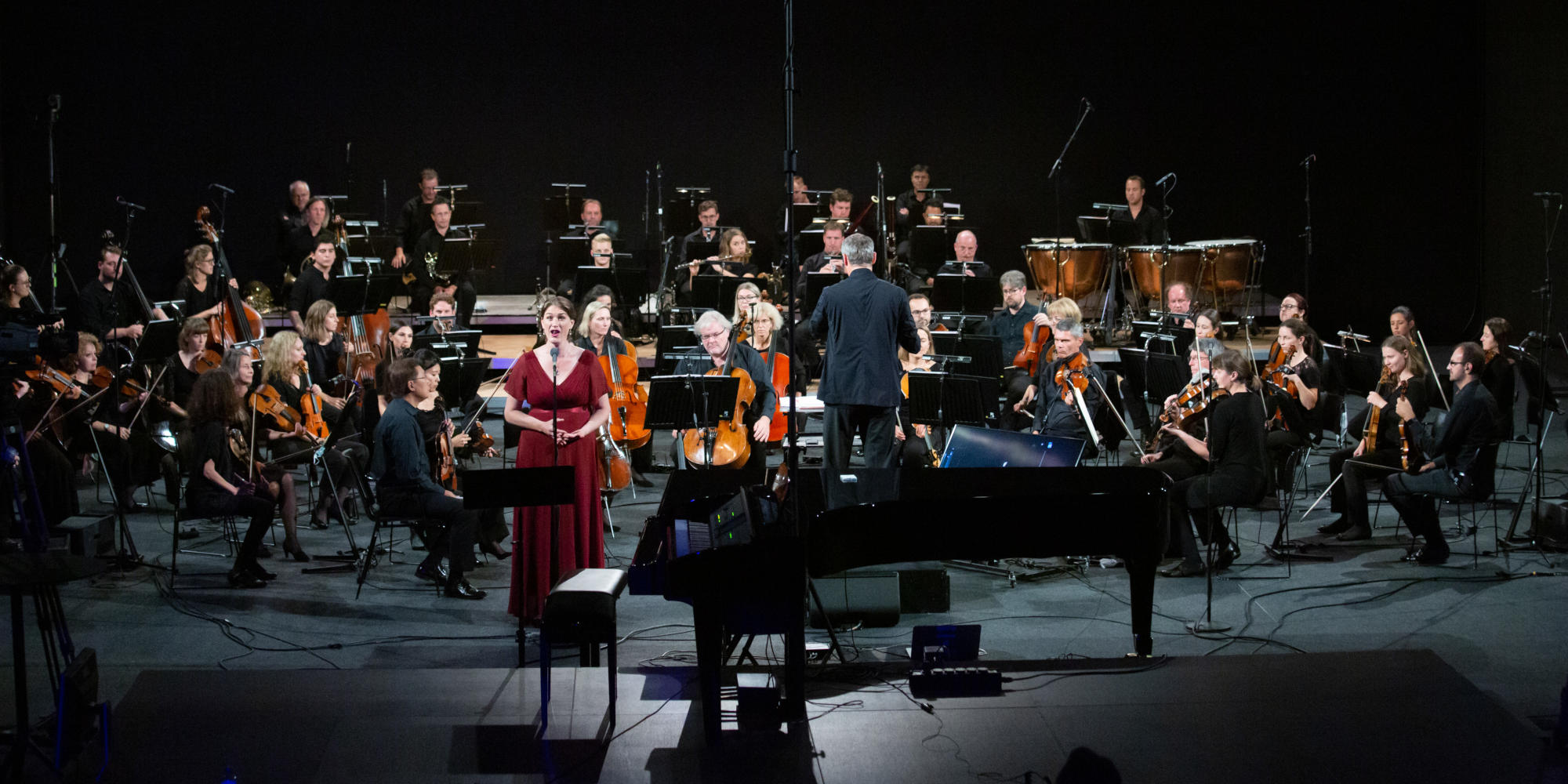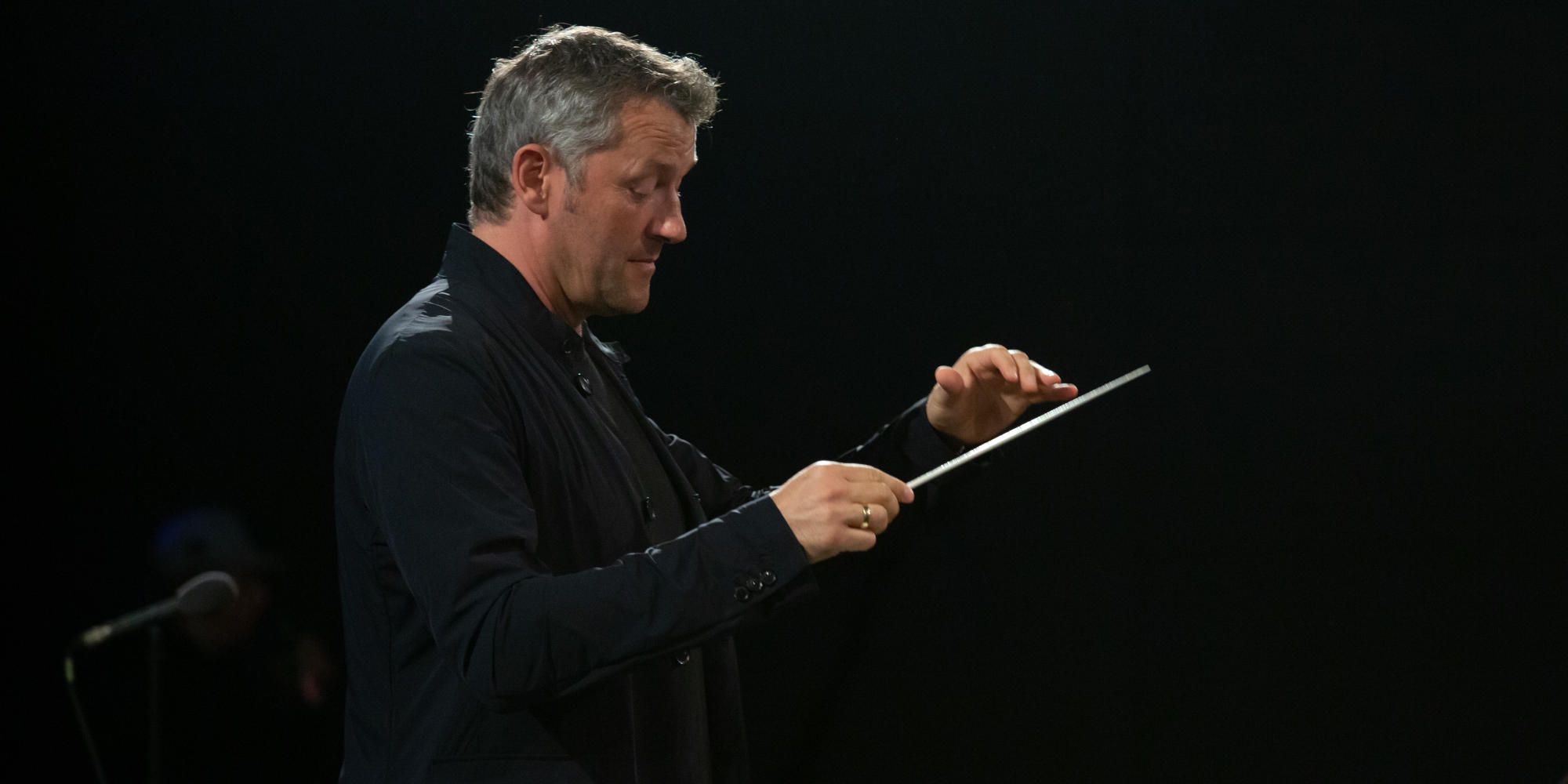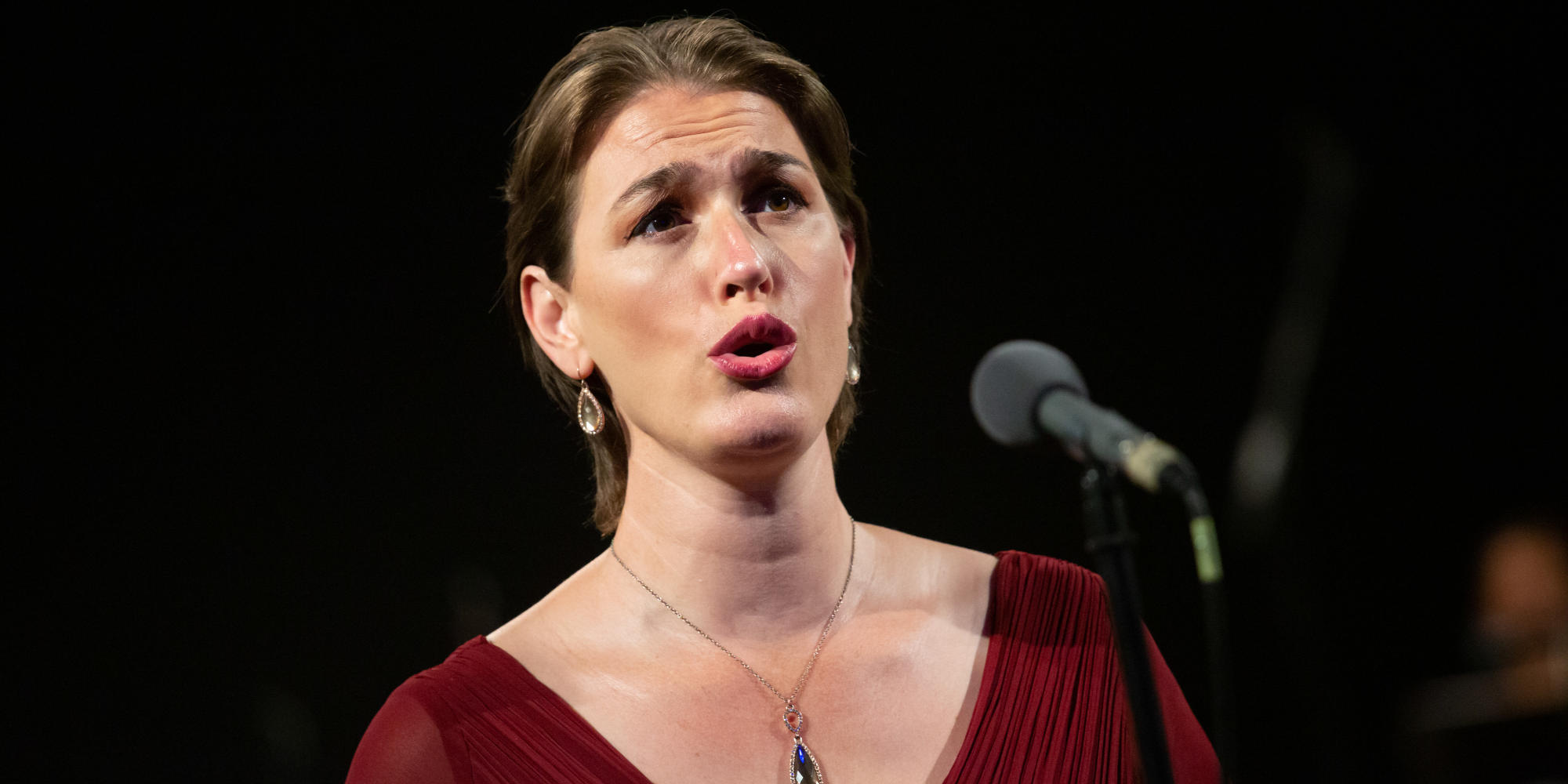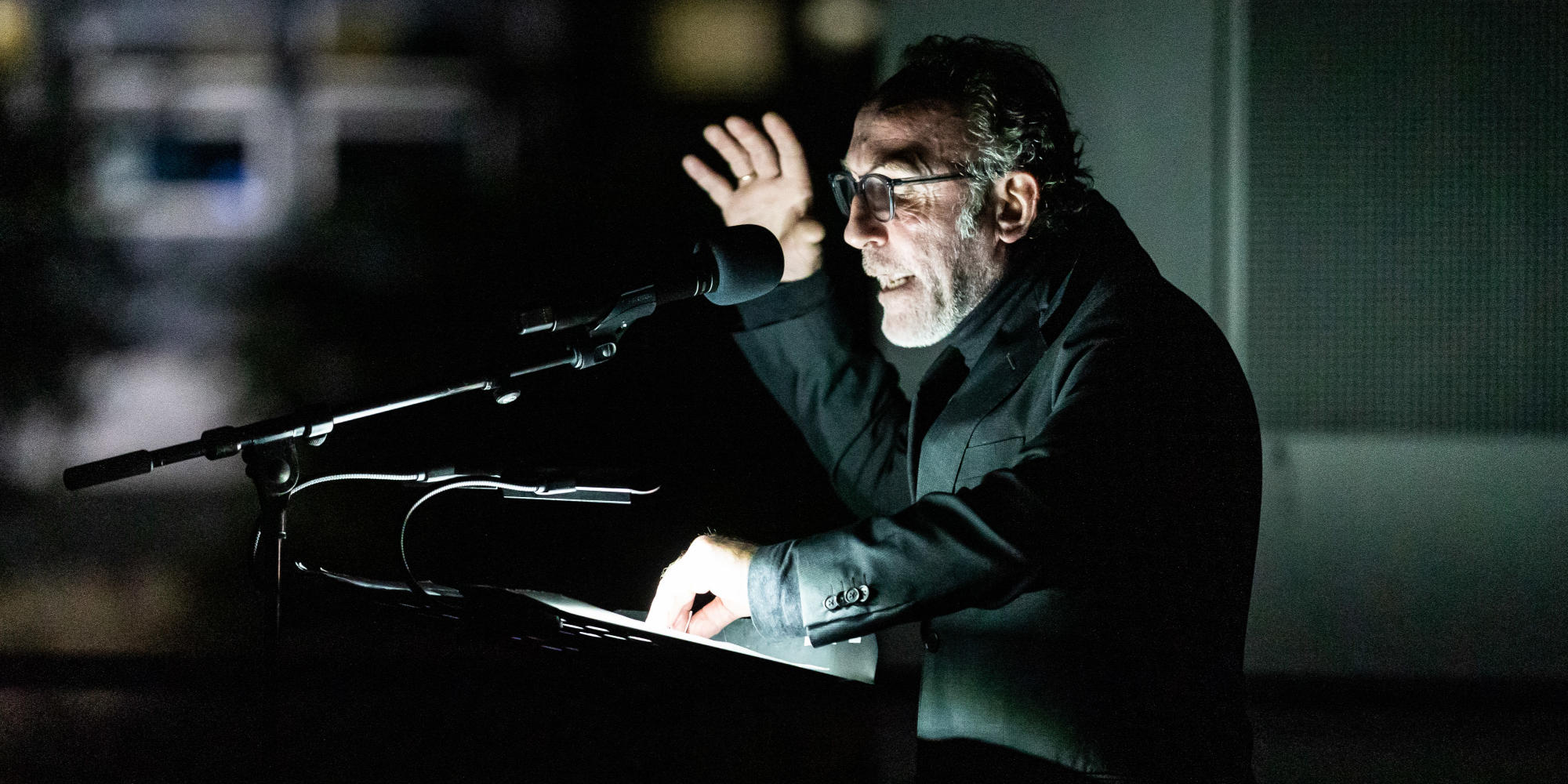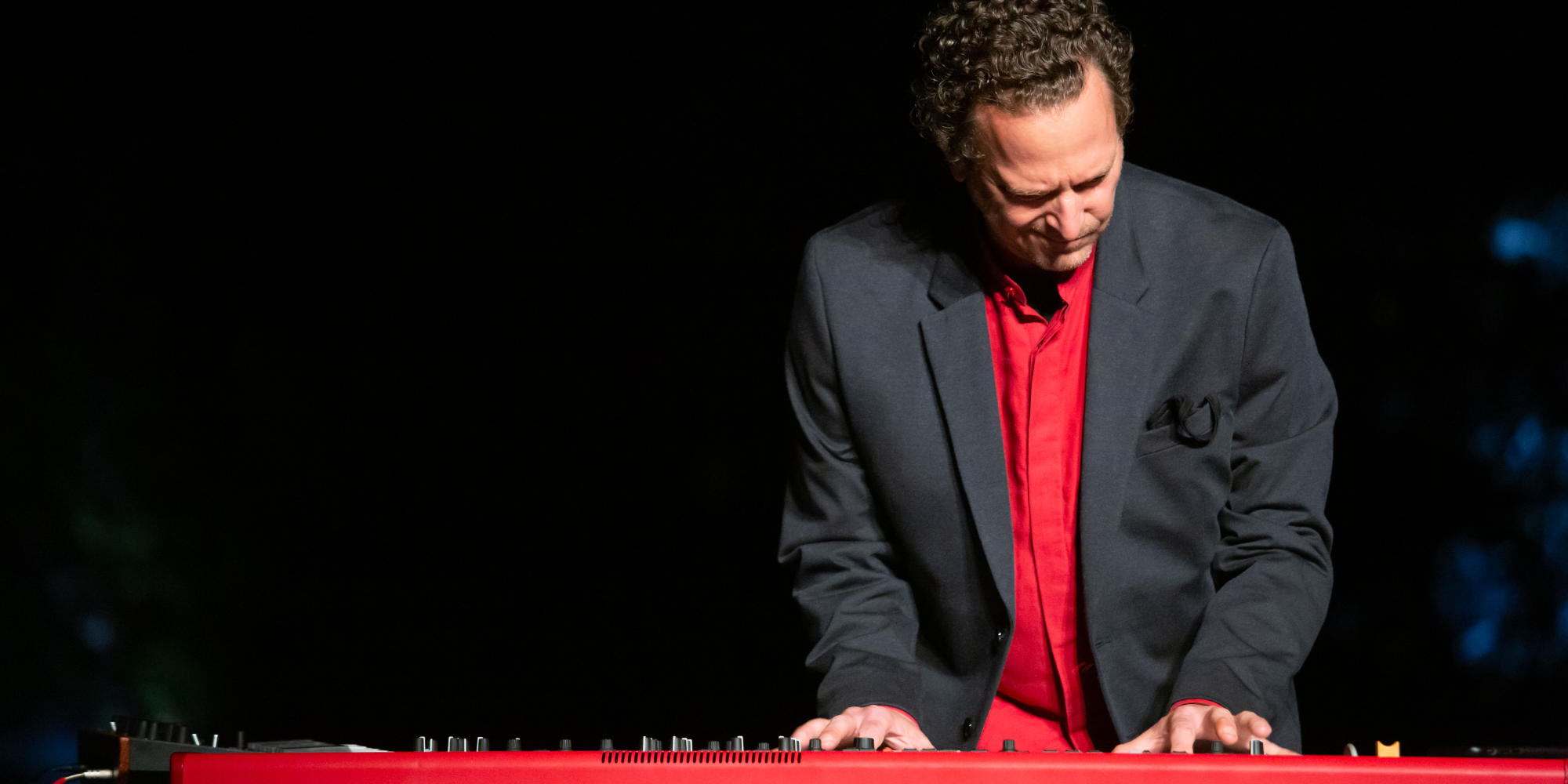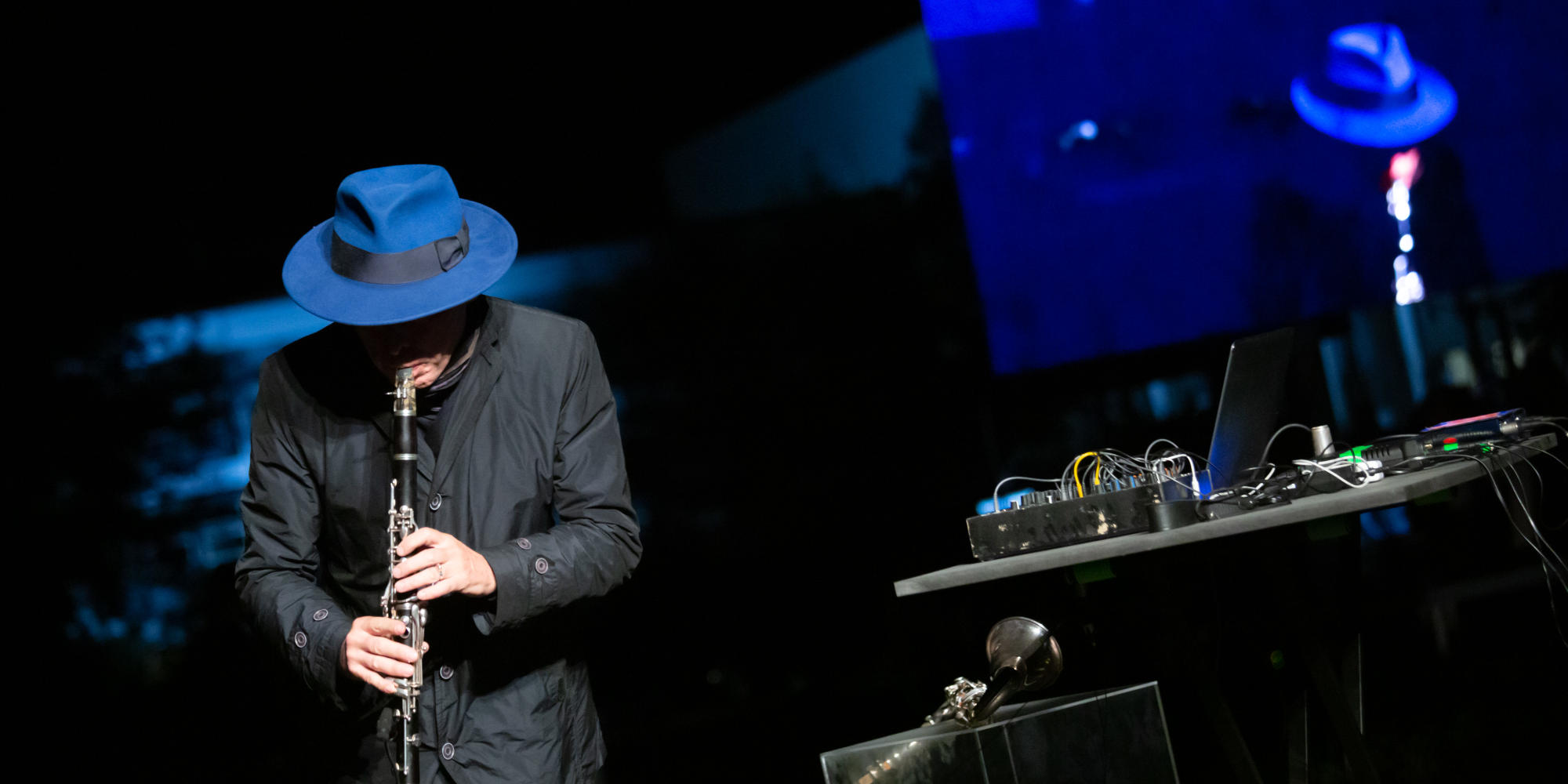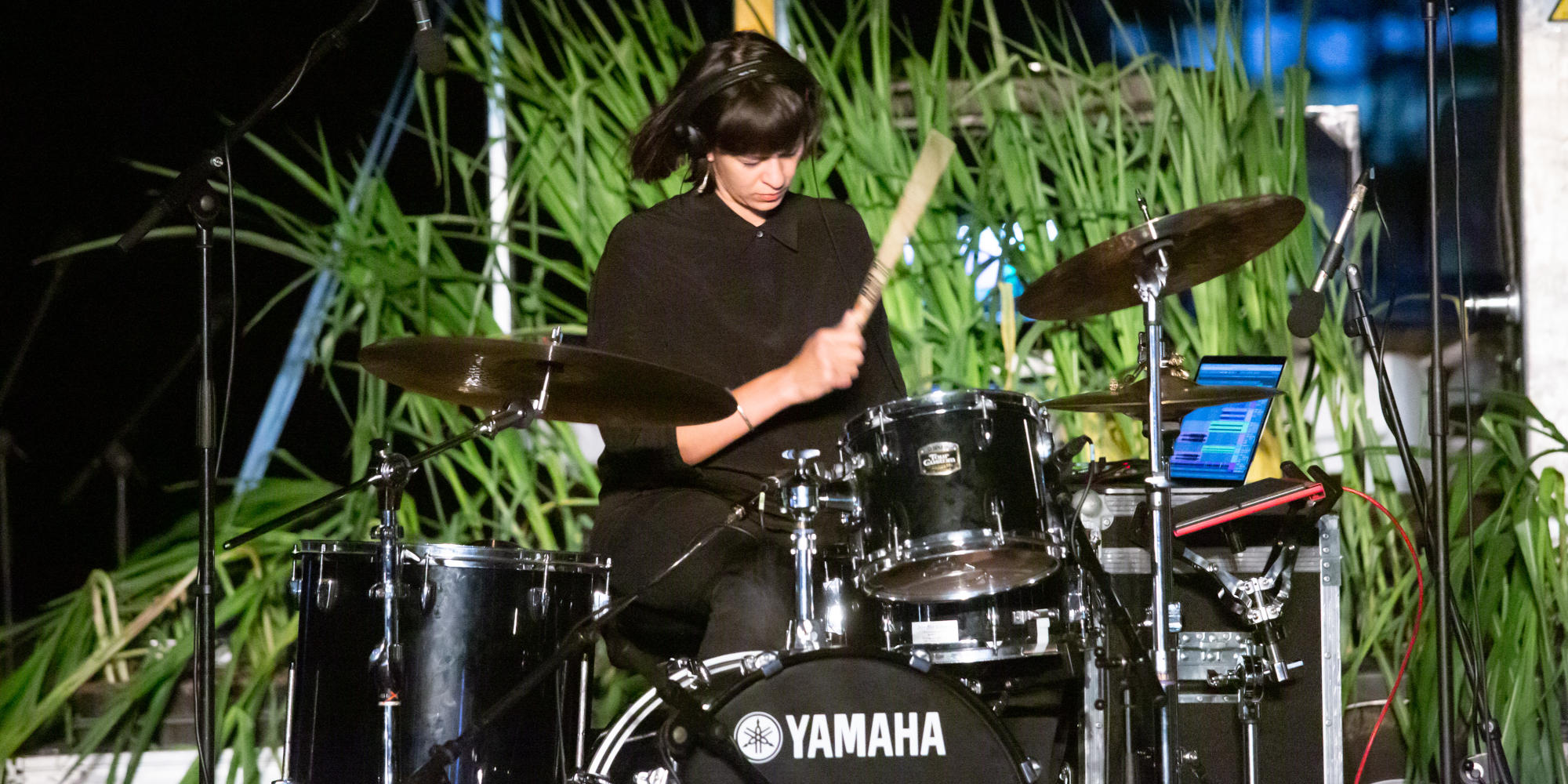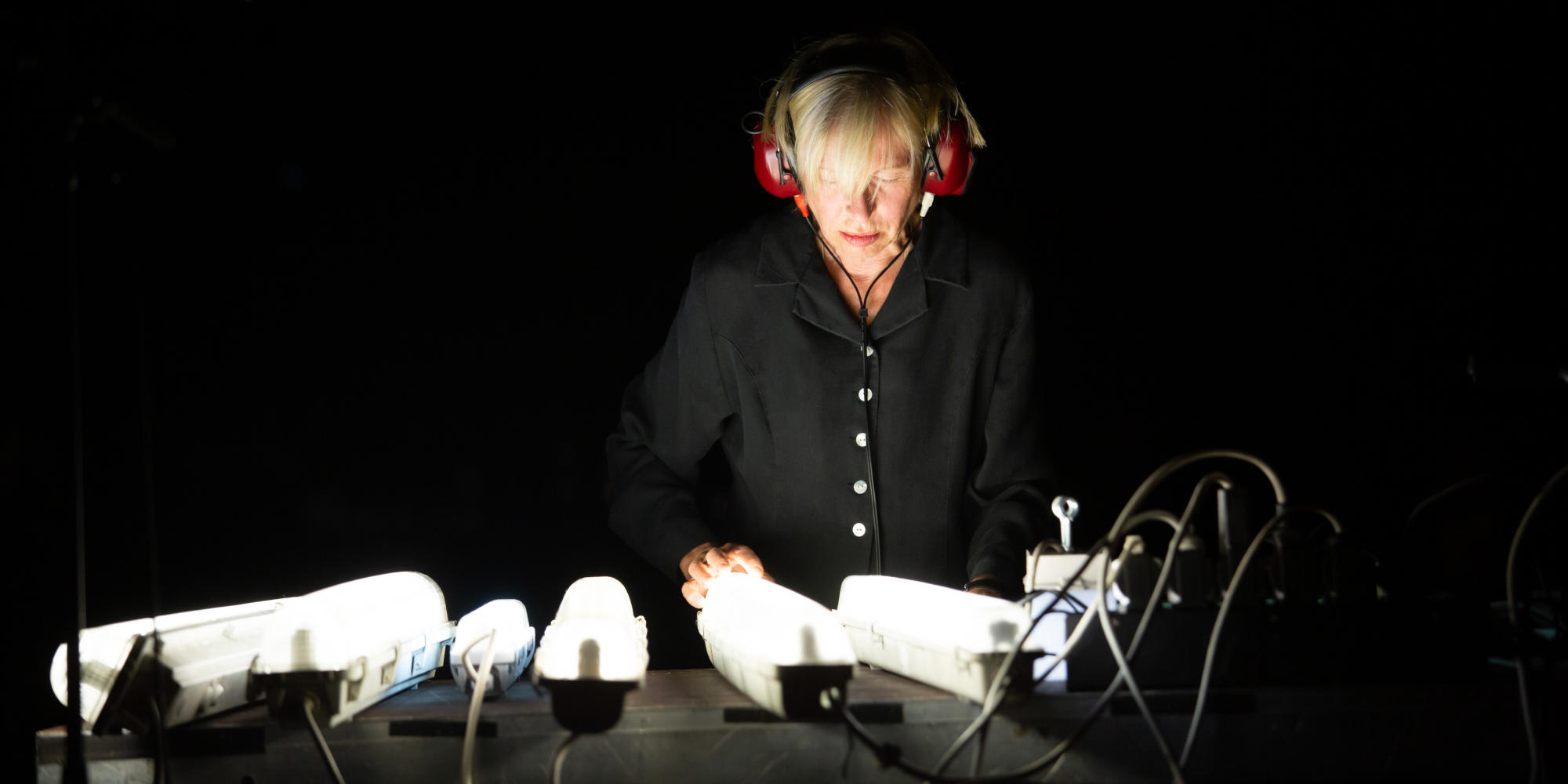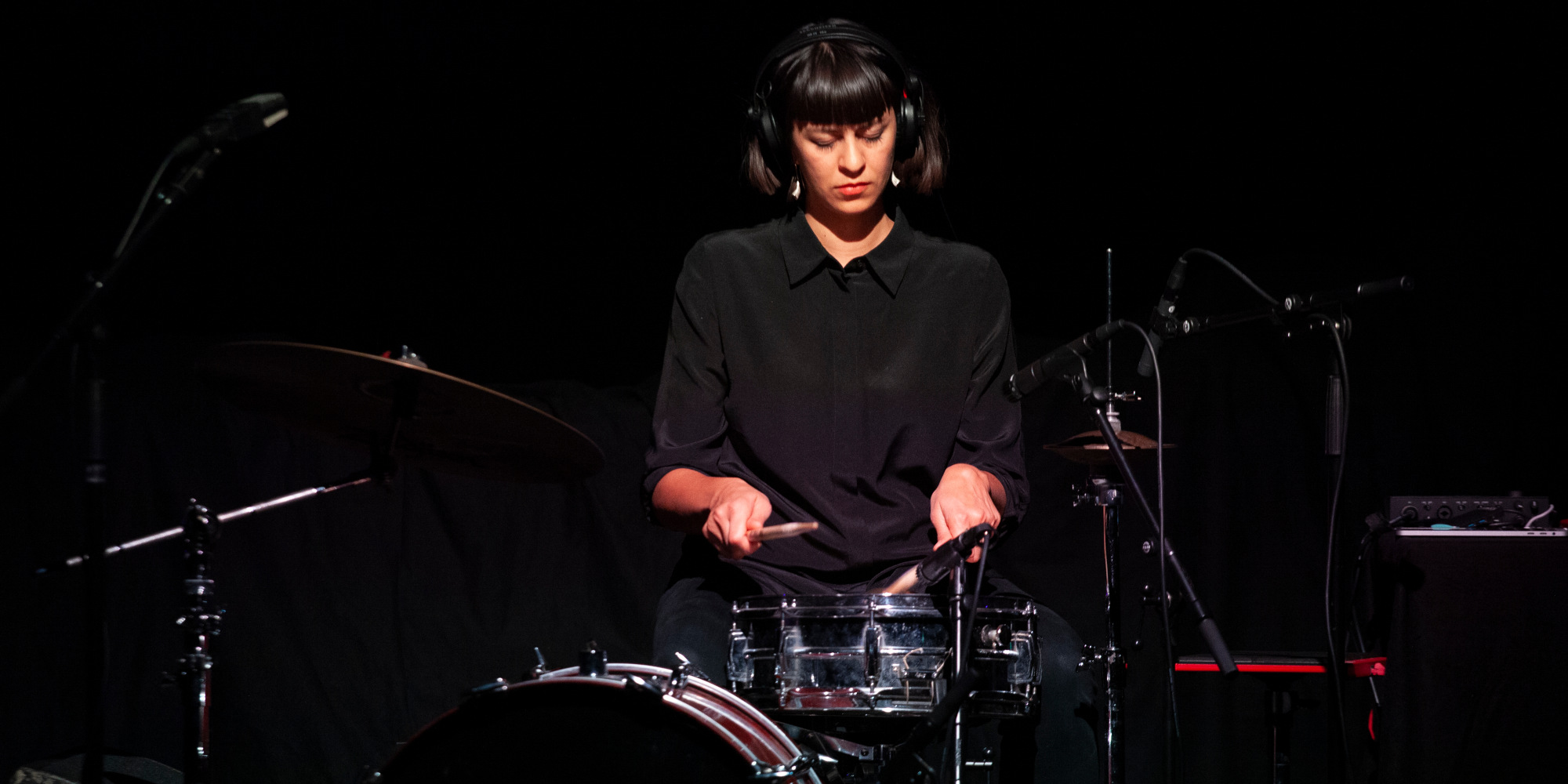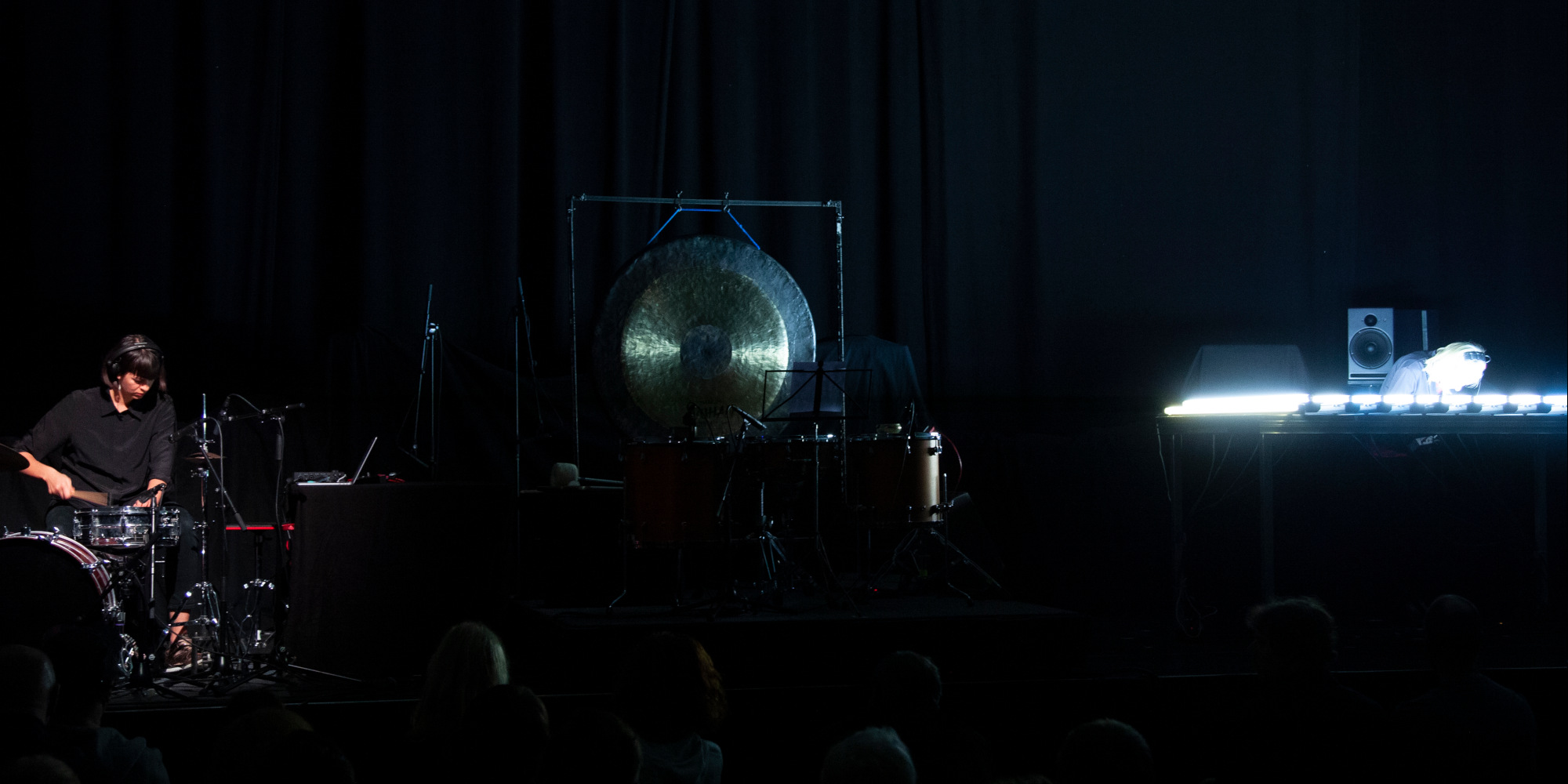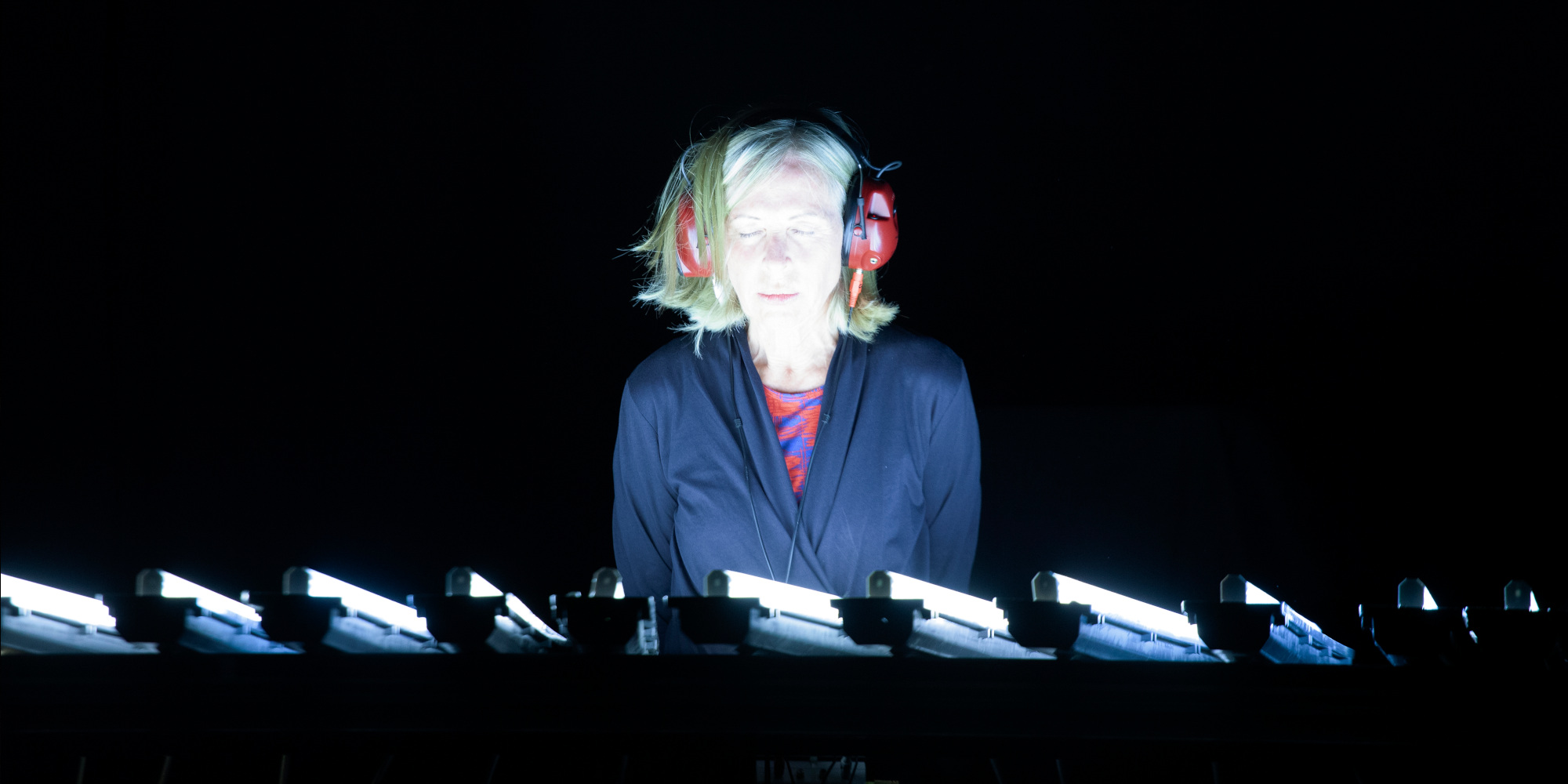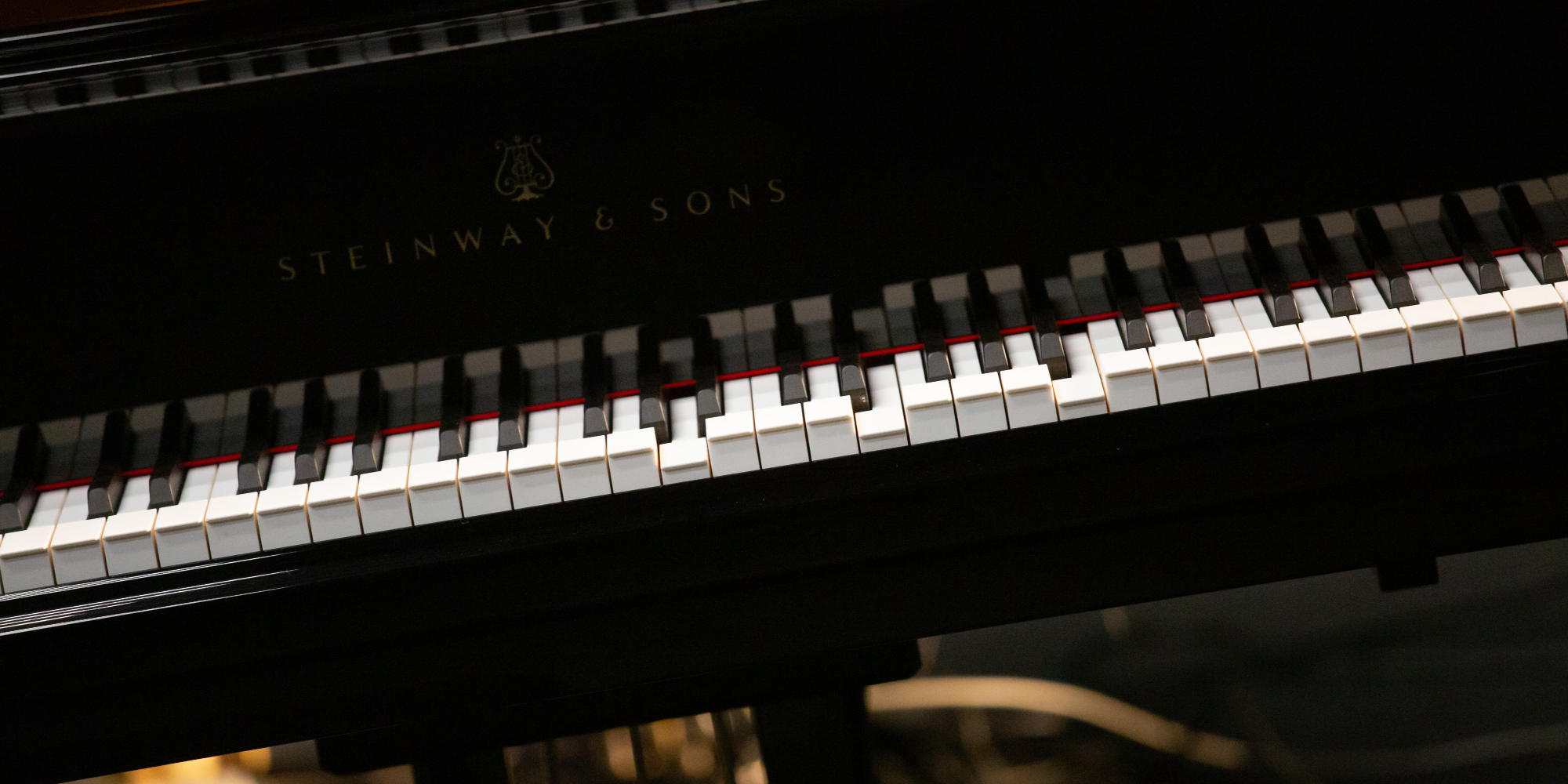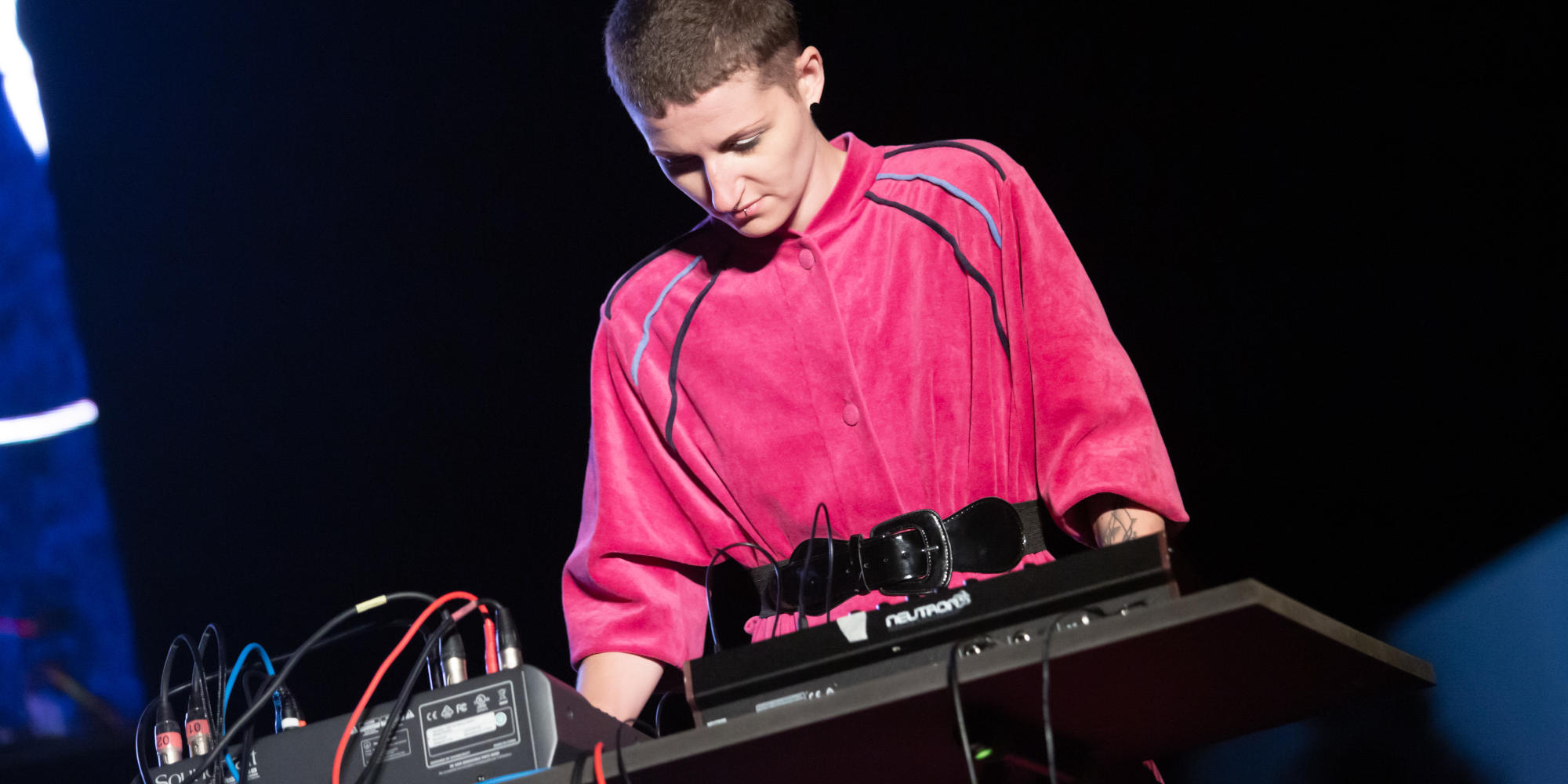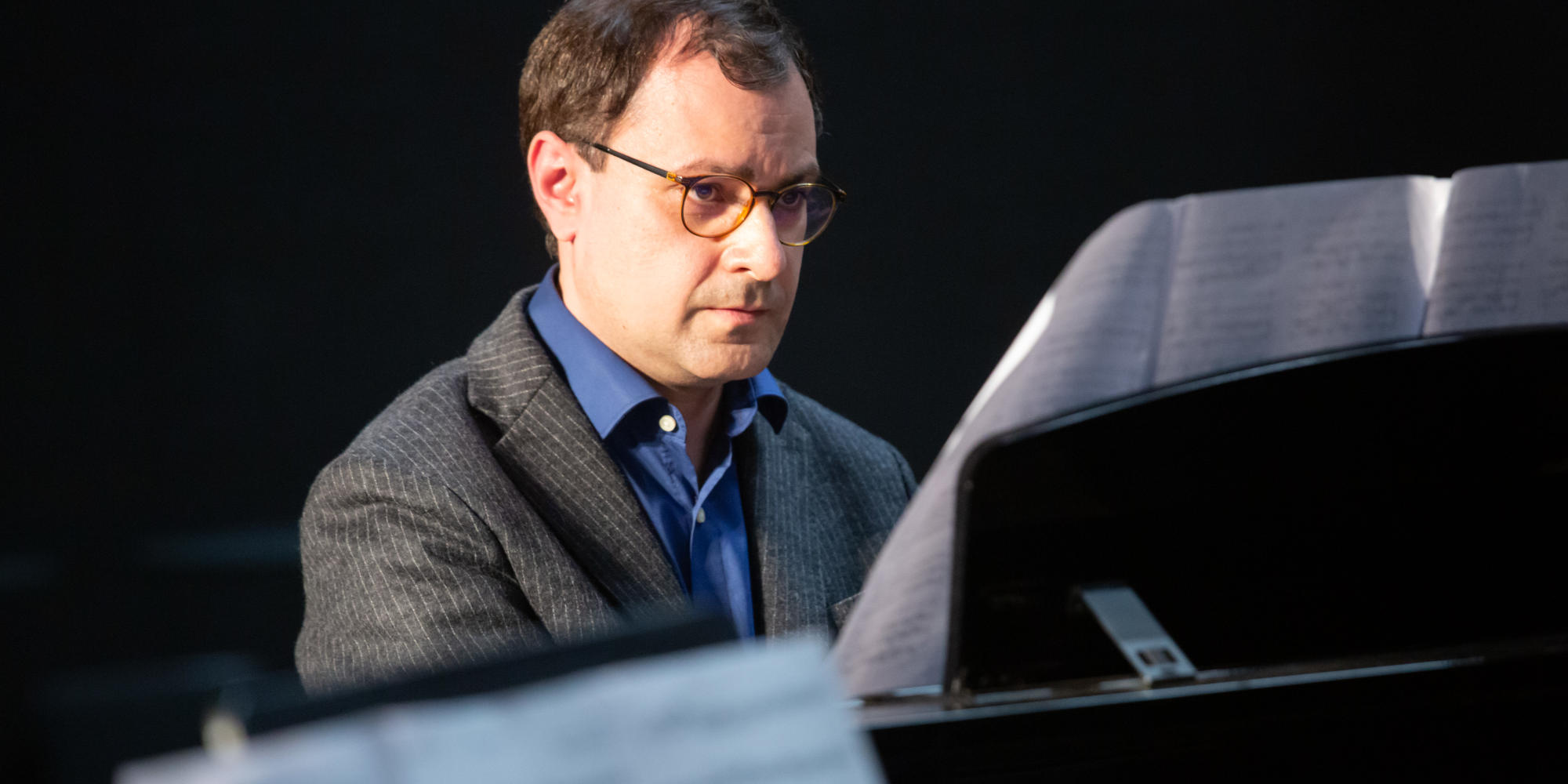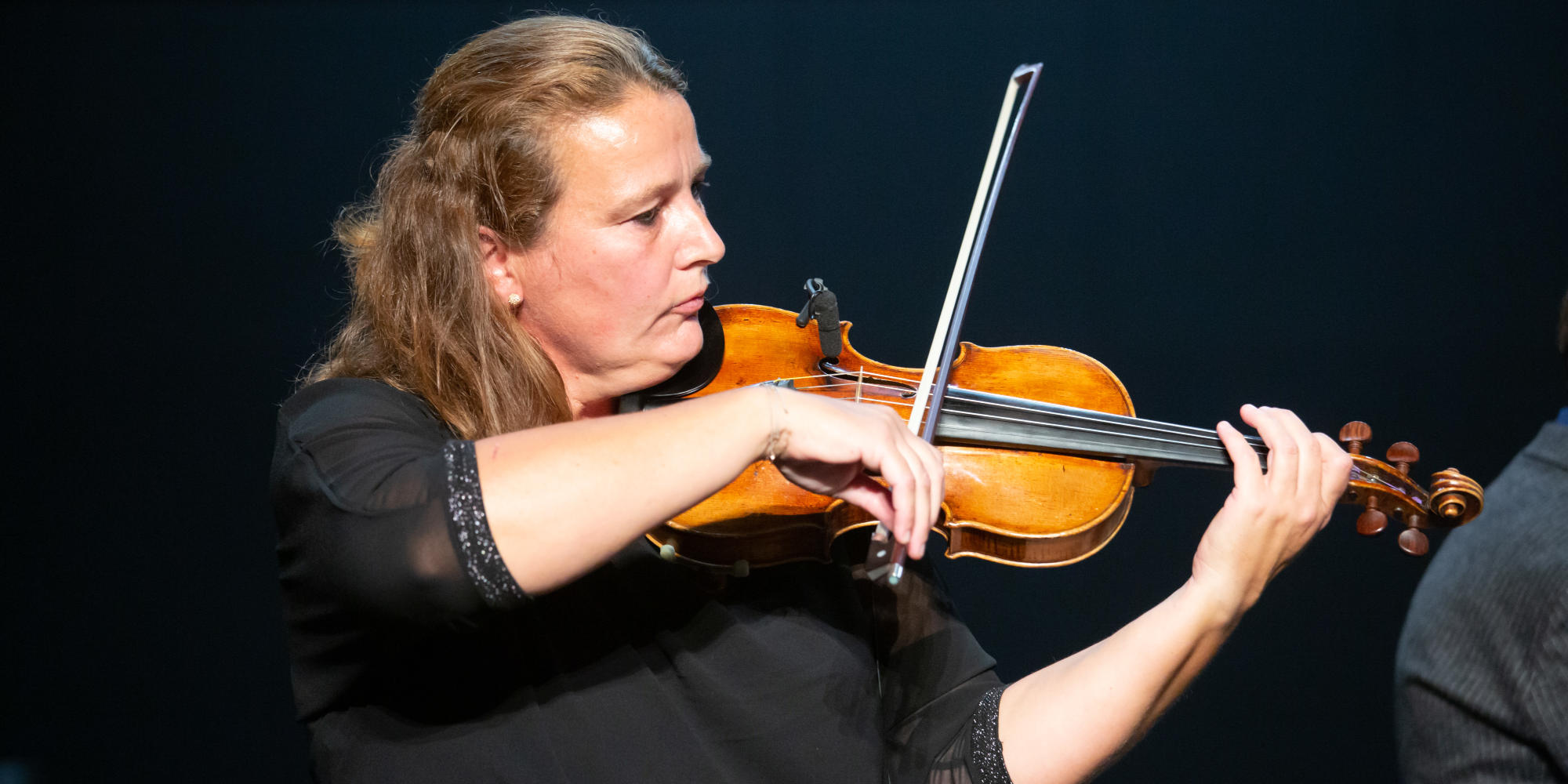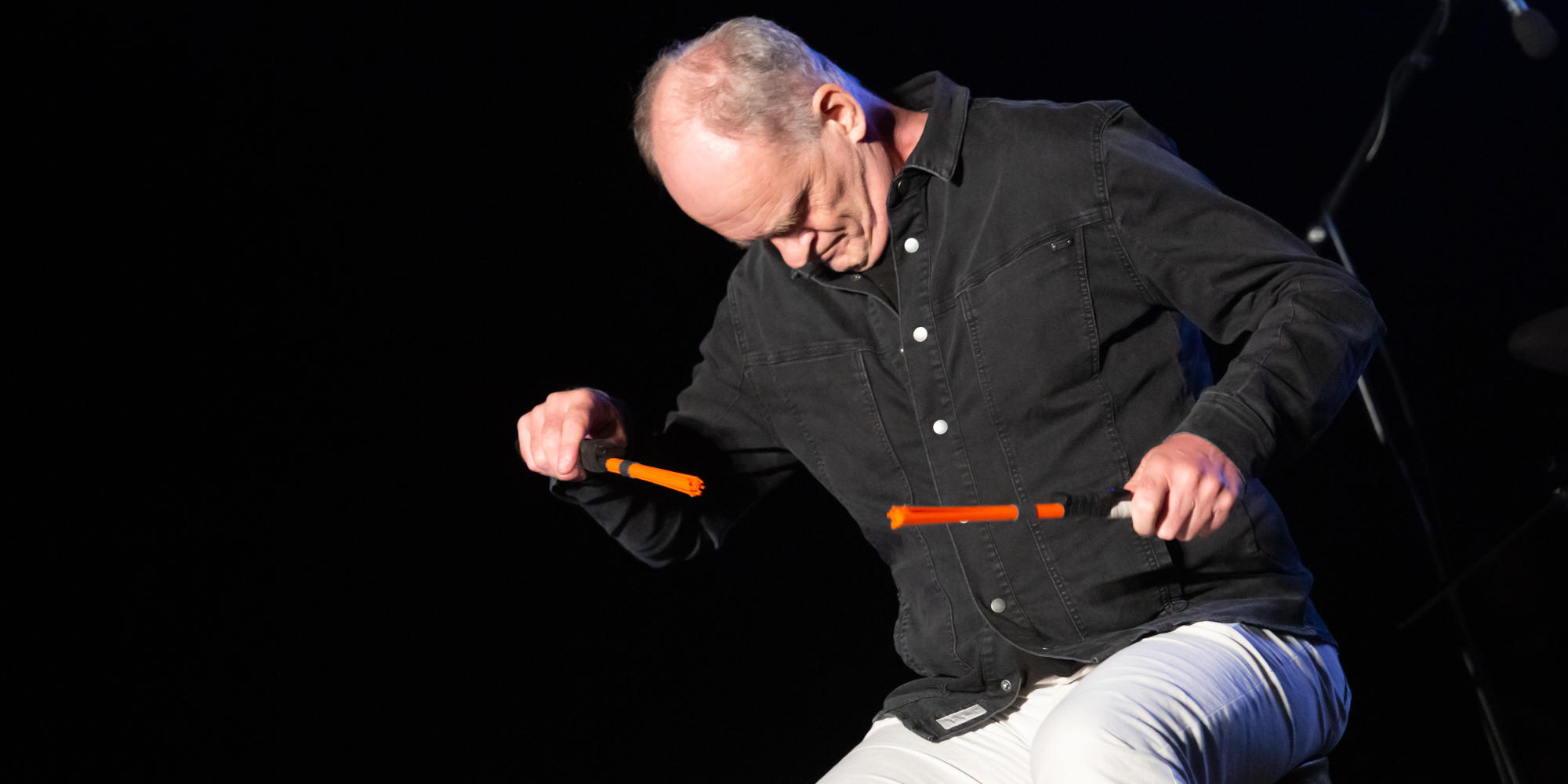Fidelio Freedom Project
In Kooperation mit dem Bruckner Orchester Linz
The Big Concert Night in collaboration with Bruckner Orchestra Linz has been an integral and unique part of the Ars Electronica Festival for over a decade. Each year, it provides unique opportunities to explore and cross boundaries – an encounter between musical worlds. Like many other program formats of this year’s festival, the security measures imposed by COVID-19 strongly affected its design and presentation possibilities. Despite all, and after several years of successful collaboration with the conductor Markus Poschner, it was possible to develop a project that completely lives up to the unique format of the Big Concert Night in its interweaving of musical styles and epochs and the interaction of artists from different genres.
The necessity of the spatial distances between the visitors as well as performers, and the fact that the festival is conceived as continuous hybrid between on-site and online, led to a new design principle for staging the project. The extensive grounds of the JKU Campus transform into a performance area for musicians and actors. The audience’s attention is not focused on a central stage, but surrounded by dialogue and interplay of artistic elements.
Fidelio Freedom Project
At the center of the project is Beethoven’s Fidelio, the great opera of liberation. In reference to the current global conflict situations and the thematic focus Autonomy – Democracy of this year’s Ars Electronica, the *Fidelio Freedom Project* embarks on a journey through cultural history. Motifs originating from antiquity are taken up, revolving around resistance and the struggle for justice, but also addressing solidarity, mutual support and the responsibility of the individual. Markus Poschner and his Bruckner Orchestra are joined by two outstanding actors – Karl Markovics and Maria Hofstätter – along with the jazz formation of Bastian Jütte, Harald Scharf, Hugo Friedrich Siegmeth and Nguyên Lê. Additionally, this evening will feature the musicians Rupert Huber, Roberto Paci Dalo and AGF.
Chosen texts and quotes originate from Pico della Mirandola, Olympe de Gouges, Rainer Maria Rilke, Johanna Dohnal, John Milton, Martin Luther King, Henry David Thoreau and Eckart Winkler.
Fidelio Freedom Project Recording
Interference – Christina Kubisch and Katharina Ernst
The second part of the Big Concert Night brings Christina Kubisch and Katharina Ernst on stage with their Project Interference. A piece that combines instrumental sounds with the sounds of electromagnetic fields and digital elements to create a virtuoso interplay of human and machine.
Interference is a piece about different rhythmical structures controlling each other. In the first part, Christina’s recordings of electromagnetic waves of all kinds – such as security barriers, light advertisements and server rooms from Bangkok to NYC, from Berlin to Shanghai – lord over the drums; while the old dependency on metronomic forms is questioned in the second part, which develops into a revolutionary role reversal for the third and last segment, where the playback track no longer leads the drummer, the machine no longer sets the mood. A human sense of timing is re-established, the computer becomes like a band member, listening and adapting; and while Christina is detecting electromagnetic fields live on stage with her especially developed technology that translates electromagnetic waves into audio waves, Katharina bends the possibilities by following – and being followed by – BeatSeeker.
Interference Project Recording
The Big AI-Jam – AI meets musical diversity
Finally, Ali Nikrang – composer and AI researcher at the Ars Electronica Futurelab – will present his AIxMusic project. He has developed an advanced AI composition software and invited musicians from the international network of festival partners to create their individual musical response, interpretation or improvisation. This evolved into a major network project within the framework of the Ars Electronica Festival 2020, resulting in nine musicians performing their contributions live.
The Big AI-Jam Recoding
Project Credits / Acknowledgements
A project by Ars Electronica and Bruckner Orchestra Linz
Orchestra: Bruckner Orchestra Linz, principal conductor: Markus Poschner
Texts: Karl Markovics, Maria Hofstätter
Live music: Rupert Huber, Roberto Paci Daló, Nguyên Lê, Harald Scharf, Hugo Friedrich Siegmeth, Bastian Jütte, Christina Kubisch, Katharina Ernst, AGF
Big AI Jam Live: Ali Nkrang, Yishu Jiang, Daniela Mülleder, Josef Klammer, Rupert Huber, Roberto Paci Daló, Abu Gabi, Ars Electronica Futurelab
Biographies
Rupert Huber, *1967, is a composer and musician. Music by Rupert Huber is organized structures, sounds and tones for multiple real and electronic spaces: Dimensional Music. His spatial and installation work focuses on the thematic of the communication possibilities within a given space, the people there and the sound of the very site itself. He is best known for his piano music and music installations; his electronic music project TOSCA; and his collaborations with the Ars Electronica. For Huber, music is communication as well as an active state of peace. www.ruperthuber.com
Roberto Paci Dalò (IT) Sound and visual artist, author, director, composer, musician. His work has been presented worldwide and won him admiration from, among the others, Aleksandr Sokurov and John Cage. He leads the group Giardini Pensili. Professor of Interaction Design at UNIRSM (Republic of San Marino) where he is the founder and director of Usmaradio, radio station and Research Centre for Radiophonic Studies. robertopacidalo.com
Hugo Siegmeth sees himself as a European jazz musician for whom it is a matter of course also to exploit classical music as a field for improvisation. Born in Banat (Arad/Romania), he emigrated to Germany in 1976. As early as during his studies at the Richard Strauss Conservatory in Munich, he was awarded the Bavarian Promotion Prize in 1998 and Bavarian Radio’s New Generation Award in 2001. As a soloist, Siegmeth has advanced to be- come one of the most autonomous representatives of the saxophone by virtue of his characteristic colouring in the field of tension between jazz, classical music and world music. In 2015, he was awarded the Promotion Prize of the City of Munich for this achievement. His concert work as a soloist and artistic director leads to many radio and CD productions as well as appearances at international festivals such as Montreux ( Jazz Festival), New York (Lincoln Center), Singapore (New Arts Festival), to tours through North and South America, Australia as well as through Central Asia and Sudan on the behest of the Goethe Institute . He can be heard in as varied orchestras as the Hugo Siegmeth Ensemble, in duo with the lutenist Axel Wolf and with Clark Terry, Michael Wollny, the Ensemble Sarband, the Bruckner Orchestra in Linz under the baton of Markus Poschner or in the contemporary opera Die Soldaten, conducted by Kirill Petrenko at the State Opera in Munich. Since 2006, Hugo Siegmeth has regularly composed for soundtracks like Sag mir, wo die Schönen sind (Berlinale, 2008), Geheimnisse Asiens (Arte, 2013) or Kill me today, tomorrow I ́m sick! (Montreal World Film Festival, 2018). Since 2014, Hugo Siegmeth has been the artistic director of the teachers’ Big Band Bayern with busy international recital work at schools. Invitations as a lecturer to master classes and workshops take him to the ‘Festival of Young Artists in Bayreuth’, to the academies in Regensburg and Munich and, with a focus on intercultural exchange, to Tunis, Ulan Bator, Lima, Sibiu and Bagamoyo. www.hugo-siegmeth.de
Abu Gabi (DE): Vienna based composer, DJ and curator Tanja Fuchs aka Abu Gabi is a progressive force between noise and radical bass vibrance, itching in pop and club cultural stigmata. She studied music production in Salzburg, music & performance in Istanbul and timebased media arts in Linz. Coming from anarcho-pop and improvisational music she’s an activist solo artist as well as part of the contemporary harsh club duo DVRST. Also as a writer, lecturer and curator she’s driven by the intense, deconstructed and allegedly incombinable (Klangfestival, Ars Electronica Festival 2018, Klubinstitut 2019). She is also working at Ventil Records, Vienna based label for adventurous music.
https://www.instagram.com/abu_gabi__/
Christina Kubisch belongs to the first generation of sound artists. She was born in Bremen in 1948 and studied painting, music and electronics in Hamburg, Graz, Zürich and Milano, where she graduated. Performances, concerts and works with video in the seventies, subsequently sound installations, sound sculptures and work with ultraviolet light. Her compositions are mostly electroacoustic, but she has written for ensembles as well. Since 2003 she works again as a performer and collaborates with various musicians and dancers. Numerous grants and awards, such as the Award of the German Industrial Association (BDI) 1998, composition grant of the city of Berlin 2000, Carl Djerassi Honorary Fellowship, USA 2000, artist-in-residence IASPIS, Stockholm 2002, Honorary prize of the German Sound Art Prize 2008, City sound artist Bonn, 2013. Since 1974 solo exhibitions in Europe, USA, Australia, Japan and South America. Numerous participations in international festivals and group exhibitions such as: Pro Musica Nova, Bremen 1976 and 1980, Für Augen und Ohren, Berlin 1980, Biennale of Venice 1980 and 1982, documenta 8, Kassel 1987, Ars Electronica, Linz 1987 and 2010, Steirischer Herbst, Graz 1987, Biennale of Sydney 1990, Biennale of Nagoya 1991, Donaueschinger Musiktage 1993 and 1997, Sonambiente, Berlin 1996 and 2006, Klangkunstforum Parkkolonnaden, Berlin 1999, Sonic Boom, London 2000, Visual Sound, Pittsburgh 2001, Singuhr Hörgalerie, Berlin 2002, Activating the Medium, San Francisco 2003, sounding spaces, Tokyo 2003, Resonances – The Electromagnetic Bodies Project, ZKM, Karlsruhe 2005, Her Noise, London 2005, B!AS International Sound Art Exhibition, Taipei 2005, Stockholm New Music 2006, Invisible Geographies: Sound Art from Germany, New York 2006, Sharjah Biennial 2007, Huddersfield Contemporary Music Festival 2007, Soni(c)loud, Mexico City 2008, RUHR2010, European Capital of Culture project, Ruhr area 2010, Salon Urbain de Douala, Cameroon, 2010, gateways, Art and Networked Culture, Tallinn 2011, White Walls Have Ears, Hong Kong 2012, Sound Art. Klang als Medium der Kunst, ZKM, Karlsruhe 2012, bonnhoeren, Beethovenstiftung Bonn, 2013, festival NOW, Essen 2014, blurred edges festival, Hamburg, 2015. Her music has been released with various labels such as Cramps Records, Edition RZ, ampersand, semishigure, Die Schachtel, Olof Bright, AA Records. Christina Kubisch has been a visiting professor in Maastricht, Paris and Berlin. She has been a professor for sound art at the Academy of Fine Arts, Saarbrücken, Germany, from 1994 to 2013. She is a member of the Akademie der Künste Berlin since 1997.
Katharina Ernst, born in 1987, is a fine arts / painting graduate. She started playing the drums at age nine. Her major interests in drumming are polyrhythmical, polymetrical, odd and chaotic structures. Her first choreographic work ausdehnen : zusammenziehen (a : z), a series of performance pieces on the political dimension of drums, movement and space, began in 2012, has been shown at Tanzquartier Wien (TQW), Arsenale, Venice and Theatre de la Ville, Paris, and has won several international art competitions and prizes. In 2018 she released her debut solo LP Extrametric that deals with polyrhythmic and polymetric structures of all kinds. Together with Andrew Robertson and Amaury Groc, she tested various builds of BeatSeeker and was in a constant exchange during the composing process of Interference, a piece inspired by the new possibilities offered by BeatSeeker, and the questions that come with it.
Josef Klammer, born 1958, Lienz / Easttirol / AustriaWorked initially as a photographer, studied drums at Music University GrazSince the middle of the 80’s the musician and media artist has worked continuously developing his instruments and sound whilst maintaining his involvement in research and the transformation of media immanent music potentials.
For further information http://klammer.mur.at
Nguyên Lê: Born in Paris from vietnamese parents, Nguyên Lê began to play drums at the age of 15, then took up guitar & electric bass. After graduating in Visual Arts, he majored in Philosophy, writing a thesis on Exoticism. Then he devoted to music, creating “ULTRAMARINE”(1983), a multi-ethnic band whose CD “DÉ” has been considered “1989’s best World Music album” Philippe Conrath, Libération. A self-taught musician, Nguyên Lê started to play out of any stylistic borders: Rock & Funk (Jim Cuomo, Madagascar 84), Jazz standards & avant-garde Jazz (Marc Ducret, Yves Robert), Pop Singers (Ray Charles), Contemporary Music (André Almuro, Tona Scherchen, Marius Constant, Mauricio Kagel), Ethnic Music: African & Caribbean with ULTRAMARINE (85), Algerian with Safy Boutella & Cheb Mami, Indian with Kakoli, Turkish with Kudsi Erguner, Vietnamese with the learning of “Dan Bau” (monocorde) in 1979. http://nguyen-le.com/Site_Nu/Bonjour.html
Harald Scharf, Kontrabassist, geboren in München, studierte Musik an der Hochschule für Musik und Theater sowie am Richard-Strauss-Konservatorium in München. 1994 ging als Stipendiat der Musikhochschule an das Whitworth College in Spokane, Washington, USA, wo er sich vor allem mit der Musik von Charles Mingus und Dave Holland beschäftigte. In den folgenden Jahren nahm er an Meisterkursen bei Ray Brown, Ron Carter und Dario Deidda teil. 2001 gewann er der den new generation contest im Rahmen des Jazzfestivals Jazz an der Donau, 2011 wurde er mit dem Kulturpreis Bayerischer Poetentaler ausgezeichnet. Harald Scharf ist regelmäßig als Bandleader, Komponist und Arrangeur diverser eigener Crossover-Jazzprojekte tätig wie z.B. „Musik zur Stille der Nacht”, „Swinging Christmas” oder „Poetic Night of Bossa Nova”. Mit seiner Band Norisha, mit Songs aus seiner Feder und Texten der US-amerikanischen Sängerin Norisha Campbell, ist er aktuell in Deutschland, Österreich und der Schweiz auf Tour. Neben seinem umfangreichen musikalischen Wirken ist Harald Scharf seit 2014 Künstlerischer Leiter des Internationalen Jazzweekends Unterföhring.
Bastian Jütte: Der in München ansässige Schlagzeuger, Komponist, Hochschuldozent und ECHO Preisträger Bastian Jütte begann seine musikalische Karriere an den Musikhochschulen München und Mannheim. Im Jahr 2000 veröffentlichte er seine erste CD. Mittlerweile ist er auf über 70 Einspielungen zu hören. Als Bandleader und Komponist schreibt er für sein Quartett sowie sein neuestes Projekt „Point of no Return“. Außerdem steuert er Kompositionen zu anderen Bandprojekten bei, wie beispielsweise dem „Philipp Schiepek Quartett“ oder dem „Martin Auer Quintett“. Er ist Mitglied in zahlreichen Formationen und arbeitete unter anderem mit Musikern wie Seamus Blake, David Binney, Rick Margitza, Vincent Herring, Maria Schneider, Nguyên Lê, Don Friedman, Ack von Rooyen, Michael Wollny, Johannes Enders, Adrian Mears, Frank Möbus, Klaus Doldinger, Jiggs Wiggham, der SWR und der HR Big Band zusammen. Im Laufe seiner 25 jährigen Karriere spielte er auf internationalen Festivals und Tourneen führten ihn in Länder wie Japan, Indonesien, USA, Algerien, Marokko, Tunesien, Syrien, Jordanien, Libanon, Indien, uvm. Er konnte bereits zahlreiche Auszeichnungen entgegennehmen, u.a.: 1. Platz beim Neuen Deutschen Jazzpreis mit dem Bastian Jütte Quartet 2016; ECHO Jazz als Schlagzeuger des Jahres national 2013, 1. Platz beim Neuen Deutschen Jazzpreis mit dem Tim Allhoff Trio 2010, Sonderpreis des Gasteig Fördervereins 2004, Vierteljahrespreis der Deutschen Schallplattenkritik mit dem Till Martin Quartet 2000. Bastian Jütte lehrt an den Musikhochschulen Würzburg und München.
Saied Silbak is a Palestinian composer and Oud player born in Shafaa`mr, a city located in the lower Galilee of occupied Palestine. His music has been performed around the world at festivals and concert series in Palestine, the UK, Belgium, France, Morroco, Argentina and other countries. Silbak has received a Masters Degree in music from the Guildhall School of Music and Drama in London. He composes music for solo Oud as well as traditional Arabic and various contemporary ensembles. In recent years he has worked with many artists on interdisciplinary projects and has been involved in educational and community works, developing a politically and socially engaged practice. His music is known to bring together new musical colors by fusing elements from different musical styles combined with rhythms from distinct regions of the world, providing the listener an authentic world-crossing experience.
